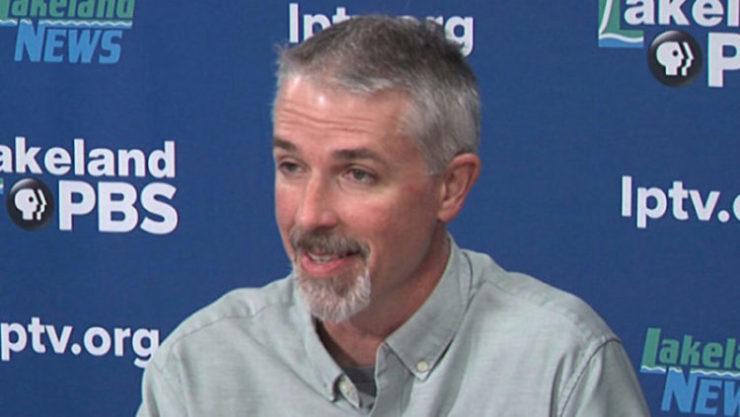NPR’s Michael Oreskes: “I’m here for the mission”
Current is making the 50th anniversary of the Public Broadcasting Act by illuminating the experiences that inspired people to choose to work in public media. Every week, we are sharing their stories using the hashtag #IAmPublicMedia. Current is also collecting longer contributions, like this one. If you’d like us to feature your story, submit it here.
Michael Oreskes
Senior VP of News and Editorial Director, NPR
I’m here for the mission. I’m sure most people in public media say that.
But I mean something very specific. The Public Broadcasting Act was a powerfully simple thought (although you might not know it from the complicated systems that have sprung from it). What was that thought? Media organizations supported by the public could fill needs that were not being met by commercial media. Back then, Newton Minow described television as a vast wasteland. He dared network executives to actually sit all day and watch what they were broadcasting. It was pretty barren. In the early days of public broadcasting, much of the focus was on filling the unmet need for better television.
The ’60s may have been a bad time in television, but ironically, we can look back and see the decade as a golden age in journalism. Metropolitan newspapers were booming. Reporting was robust and both print and television news were playing major roles in shaping events. From Vietnam to the civil rights movement, commercial media was there, witnessing and holding leaders to account. I entered journalism in 1972, on the eve of Watergate.
A lot has changed in the 50 years since Lyndon Johnson signed the Public Broadcasting Act. You can argue we are now in a golden age of television (or call it video) with the original networks and all sorts of other suppliers, from HBO to Netflix. Unfortunately, things aren’t the same in journalism. Digital disruption has badly damaged commercially supported journalism, particularly commercially supported local journalism. Now, one of society’s greatest unmet media needs is robust journalism. Noncommercial organizations have been building to fill this need. And at the heart of this effort is public media, particularly public radio.
So when I say I came to public media for the mission, I mean this mission of delivering independent, fact-based journalism to communities whose needs are no longer met by commercial news organizations.







I look at this and see yet more evidence of a man still lost in the heyday of journalism forty years ago and completely unprepared to deal with the harsh new realities of the Post-Factual Era. A man who still thinks that providing “both sides” of the story is enough. No wonder NPR’s coverage was so terrible during the last election.
Way to go!!! #ThisIsNPR
“I mean this mission of delivering independent, fact-based journalism to communities whose needs are no longer met by commercial news organizations.”
1. NPR isn’t “independent” because they are dependent on taxpayer dollars
2. A news story can be 100% factual, but 100% misleading because it omits or downplays other facts that don’t support a narrative a news organization or journalist wants to promote. Oreskes doesn’t seem to understand this.
Trust in the MSM (that includes NPR) is at an all time low for good reason. Oreskes can’t even admit there is a lack of ideological diversity on his staff, and that lack of diversity comes through loud and clear in their news product.
Is totally public.